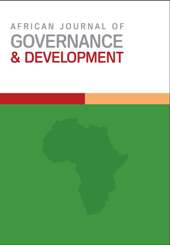Limitations of the Principal-Agent Theory to Explain the Problem of Non-Compliance in South African Municipalities
Main Article Content
Abstract
The obstinate problem of non-compliance with municipal financial legislation in South Africa has largely been explained as a principal-agent problem. Accordingly, the municipal officials as the agents are depicted as potentially non-compliant, dishonest and corrupt. Notably, measures that have been established to address the problem of non-compliance have been disproportionately focused on the municipal officials. This intrinsic bias against municipal officials is flawed and inadequate for the context and dynamics at play in the problem of non-compliance with municipal financial legislation in South African municipalities. In particular, the assumption that non-compliance occurs because the municipal councils are unable to effectively control the behaviour of the bureaucrat is not borne out by reality. This article aims to highlight the theoretical limitations of the principal-agent theory in order to explain the problem of non-compliance with municipal financial legislation in South Africa. The article utilised a qualitative methodology. Secondary data which emanated largely from the Auditor-General of South Africa’s reports was employed. Drawing on reports of the South African Auditor-General, the article shows the contribution of the municipal councillors in the problem of non-compliance. The article concludes that municipal councils are not unable but unwilling to exercise oversight obligation and duty and thus must be regarded as complicit and culpable in the problem of non-compliance in South Africa municipalities.
Article Details

This work is licensed under a Creative Commons Attribution-NonCommercial-NoDerivatives 4.0 International License.
